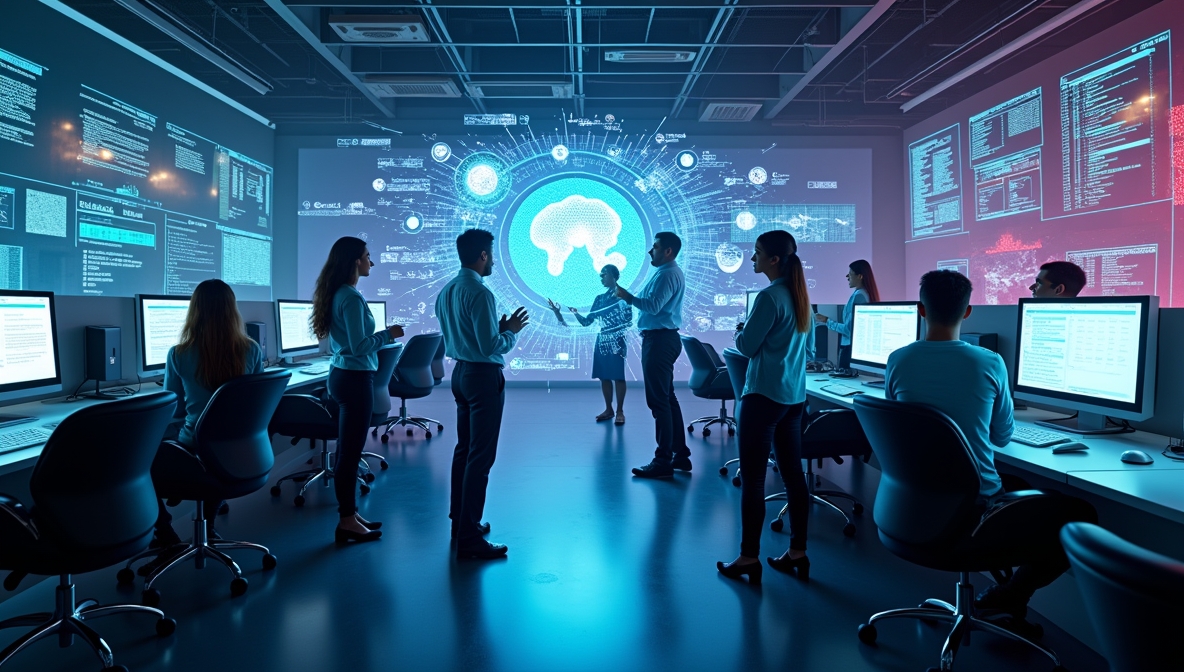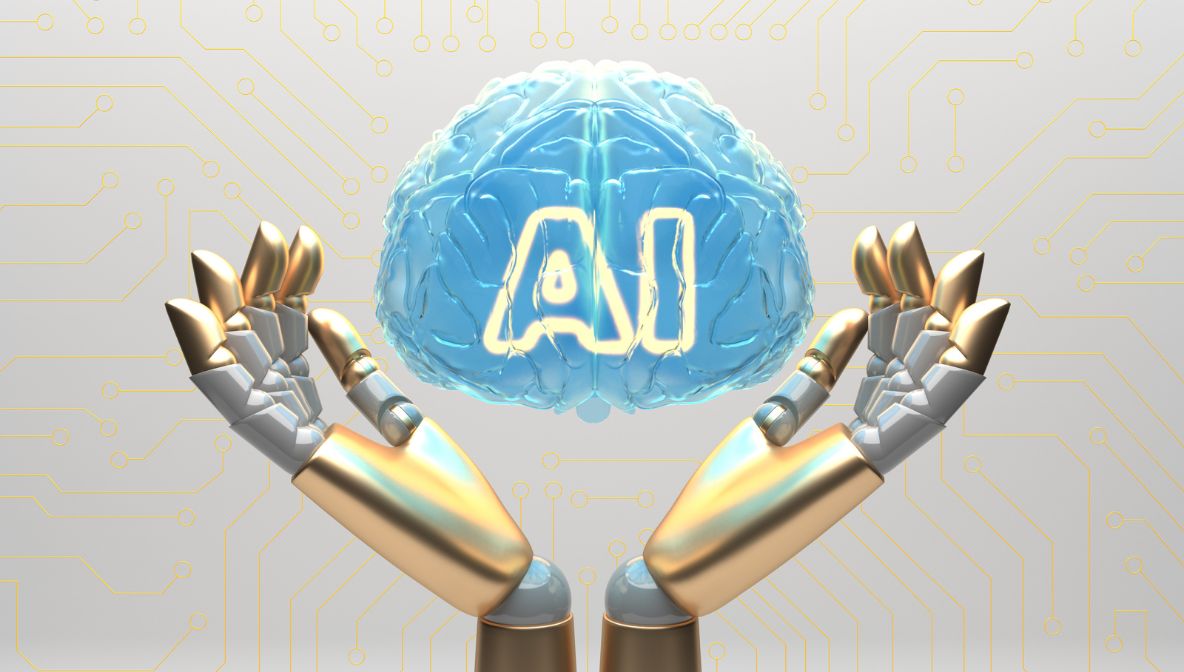In recent years, Deep Learning Technology has emerged as a powerful tool in the realm of Artificial Intelligence (AI). This technology mimics the human brain’s structure, allowing systems to learn from vast amounts of data and make decisions with minimal human input. By 2025, the integration of deep learning in multiple industries is expected to revolutionize processes, improve efficiency, and create entirely new applications.
In this article, we will explore the latest trends in Deep Learning Technology and how it’s shaping the future across various sectors. We will look into the industries that are benefiting the most, the advancements in the field, and what the future holds for this transformative technology.
Key Points After Introduction:
- Deep Learning technology enables machines to process complex data for better decision-making.
- Major industries such as healthcare, finance, and retail are embracing deep learning for enhanced outcomes.
- Understanding AI trends and advancements in deep learning can help businesses stay competitive in 2025.
What Is Deep Learning Technology and How Does It Work?
Deep Learning is a subset of machine learning that focuses on using neural networks to model high-level abstractions in data. Unlike traditional machine learning algorithms, deep learning models can automatically learn to represent data through layers of abstraction. This allows for the recognition of intricate patterns and structures in data, making it highly effective for tasks like image and speech recognition, natural language processing, and autonomous driving.
Neural networks, the foundation of deep learning, consist of multiple layers of artificial neurons. These networks can process large volumes of data and learn from it over time, improving their accuracy and performance. In the case of deep learning, the term “deep” refers to the number of layers in the network, which allows for more complex modeling.
Example:
For example, self-driving cars use deep learning to identify road signs, pedestrians, and other vehicles by processing camera images in real-time. This technology enables the car to make split-second decisions to navigate safely.
What Are the Key Applications of Deep Learning Technology?
The versatility of deep learning is evident in its widespread application across industries. Some key sectors where deep learning has made a significant impact include:
1. Healthcare
Deep learning has been instrumental in transforming healthcare. From diagnosing diseases through medical imaging to predicting patient outcomes, deep learning algorithms have made healthcare more efficient. For instance, AI-powered systems can analyze medical scans, identifying conditions such as tumors or fractures faster and with greater accuracy than humans.
2. Finance
In finance, deep learning models are used for fraud detection, algorithmic trading, and credit scoring. The ability to analyze large sets of transaction data helps identify irregularities that might indicate fraudulent activity, while also enabling more accurate and faster decision-making in trading.
3. Retail and E-Commerce
Deep learning is also driving change in the retail and e-commerce sectors. Personalization of shopping experiences, predictive demand forecasting, and inventory management are just a few examples of how deep learning is enhancing customer satisfaction and operational efficiency.
How Is Deep Learning Shaping AI and Automation?
The rise of AI and automation goes hand-in-hand with the development of deep learning technologies. Deep learning enhances the capabilities of AI, allowing machines to perform tasks previously done by humans. By using deep learning algorithms, AI systems can automate processes such as data entry, customer service, and even complex decision-making.
In the context of automation, deep learning plays a pivotal role in industries like manufacturing and logistics, where it is used to optimize production lines, predict maintenance needs, and improve supply chain management.
What Are the Future Trends of Deep Learning Technology in 2025?
The future of deep learning looks promising. By 2025, we expect significant advancements in several areas:
1. Enhanced AI and Automation
As AI and automation technologies continue to mature, deep learning models will become even more accurate, faster, and capable of handling increasingly complex tasks.
2. Improved Personalization
In industries such as marketing and entertainment, deep learning will enable businesses to offer highly personalized experiences by predicting consumer behavior with greater precision.
3. More Efficient Models
Researchers are working on creating deep learning models that are not only more efficient but also require less computational power, making them more accessible for smaller companies and organizations.
Table: AI Applications in Different Industries
| Industry | AI Application | Example Use Case |
|---|---|---|
| Healthcare | Medical Imaging, Diagnostics | Detecting tumors through X-ray images |
| Finance | Fraud Detection, Risk Assessment | Real-time credit card fraud detection |
| Retail | Personalized Shopping, Inventory | AI-driven recommendations on e-commerce sites |
Chart: Comparison of AI Algorithms
| Algorithm | Accuracy | Speed | Complexity |
|---|---|---|---|
| Deep Learning | High | Medium | High |
| SVM | Medium | High | Medium |
| Decision Trees | Low | High | Low |
Conclusion
In conclusion, Deep Learning Technology is set to transform industries and redefine the way we interact with technology. Its ability to process vast amounts of data and learn from it is revolutionizing sectors such as healthcare, finance, and retail. By 2025, we can expect even greater advancements in deep learning, particularly in AI applications and automation.
As businesses continue to invest in deep learning technologies, it will be crucial for them to stay updated on the latest trends and innovations to remain competitive in an increasingly AI-driven world.
FAQs
Q1: What is Deep Learning Technology?
A1: Deep learning is a subset of AI that uses neural networks with many layers to learn and make decisions based on large amounts of data.
Q2: How does Deep Learning impact healthcare?
A2: Deep learning helps in analyzing medical images, predicting patient outcomes, and improving diagnostic accuracy in healthcare.
Q3: Can Deep Learning replace human jobs in automation?
A3: While deep learning can automate many tasks, it is more likely to enhance human jobs rather than replace them, especially in decision-making and creative tasks.
Q4: How does Deep Learning relate to AI and automation?
A4: Deep learning enhances AI systems by allowing them to process complex data, leading to better automation and decision-making processes.
Q5: What are the trends in Deep Learning for 2025?
A5: Trends include more efficient models, enhanced AI capabilities, improved personalization, and the expansion of deep learning in new industries.
Notes/Reminders:
_Keep in mind that deep learning models require significant computational power, but advancements in hardware are making them more accessible.**_
_While deep learning has transformative potential, it is important to address ethical concerns regarding data privacy and bias in AI systems.**_




